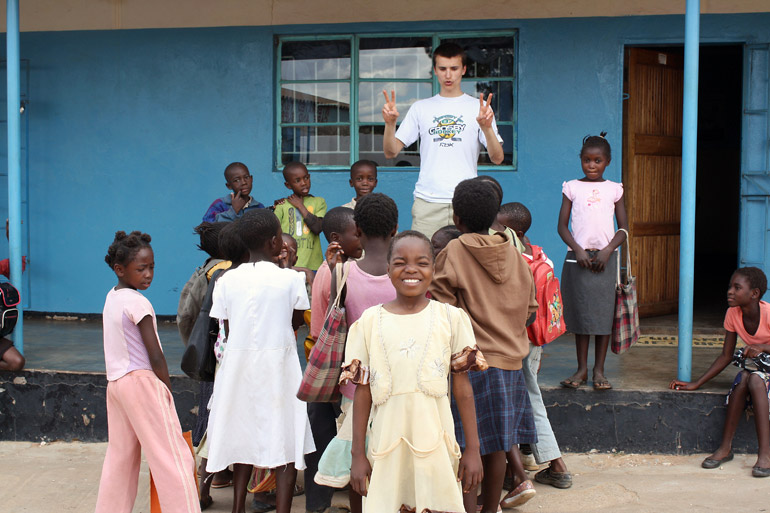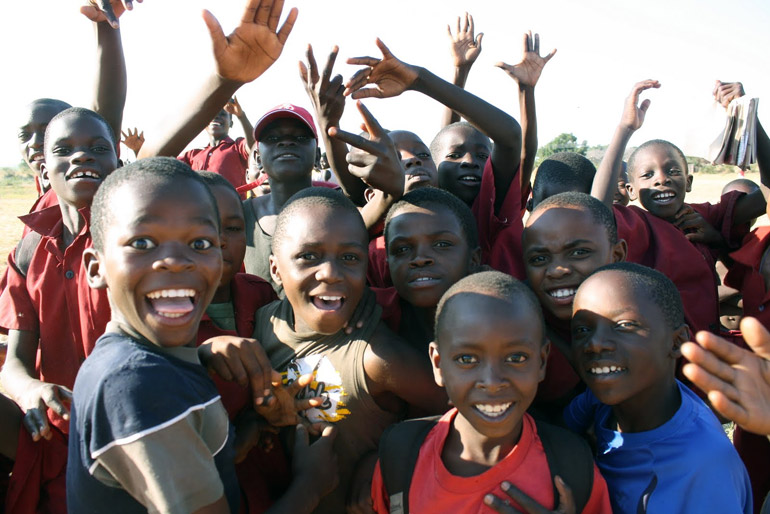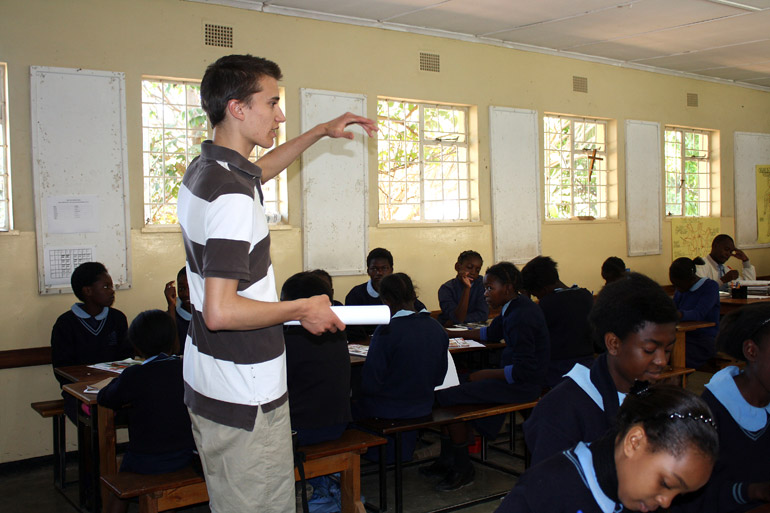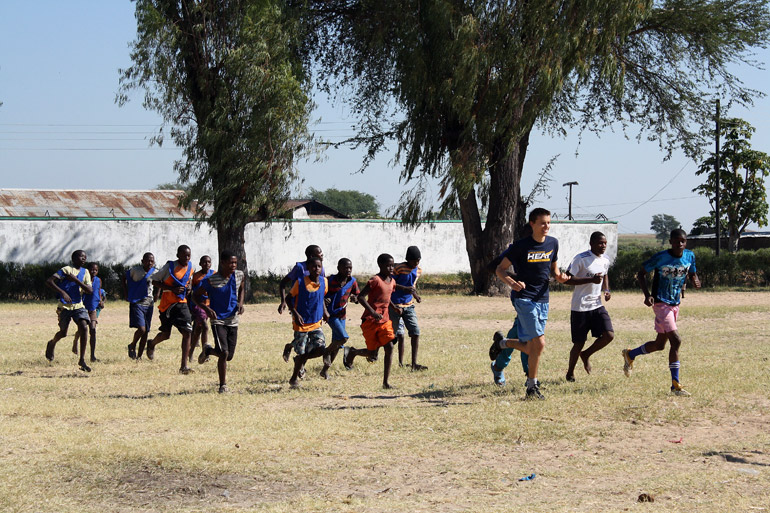
Tim Krupa plays with children orphaned by HIV and tuberculosis in the impoverished Chazanga compound in Lusaka, Zambia. Photo by Alexa Geddes
Strong spirituality and connection to nature factors in children’s well-being
Spirituality and connection to nature are good predictors of Zambian children’s well-being, according to a UBC study published in the current issue of the Journal of Happiness Studies.
UBC researchers Mark Holder and Tim Krupa, Okanagan College instructor Ben Coleman, and University of Alberta instructor Eugene Krupa completed a two-year study using three measures to gauge happiness among Zambian children and adolescents between ages 7 to 19.
The results confirmed earlier work suggesting that spirituality is a stronger predictor of children’s life satisfaction than religion.
“Our analysis shows that children’s and adolescents’ sense of spirituality and connectivity to nature explain variation in their life satisfaction beyond other factors such as religiousness,” says Tim Krupa. “That suggests that having an inner belief system and feeling close to nature may be more important to promoting well-being than practising religious rituals.”
Zambia reports high levels of participation in organized religion. In the study, 95 per cent of respondents attended church in the past month and 96 per cent reported that religion was important to them.
Despite developing-world living conditions, children and adolescents in Zambia also reported levels of happiness that are comparable to those observed among Canadian children. The study found children and adolescents rated themselves highly in terms of happiness and life satisfaction.
Using a “faces scale,” a measure of happiness that includes drawings of faces, the distribution of happiness ratings by children was similar to results for children in Western Canada and India in previous studies by Holder and Coleman.
Tim Krupa, who completed his research as an undergraduate student, travelled to Zambia in 2011 and 2012 on an International Education Travel Subsidy from the Irving K. Barber School of Arts and Sciences. He holds a bachelor of science degree in biology from UBC Okanagan’s Irving K. Barber School of Arts and Sciences and expects to graduate this spring with a master’s degree in political science from UBC’s Vancouver campus. Holder is an associate professor of psychology at UBC Okanagan.
The study included 1,329 participants from one rural school and five urban schools in three Zambian provinces. The Journal of Happiness Studies article can be found at: link.springer.com/article/10.1007/s10902-015-9640-x

Some of the Zambian children who took part in UBC’s happiness study. Photo by Alexa Geddes

Tim Krupa conducts his research survey at one of the best schools in the country, an urban Catholic girls’ school in Zambia’s capital city, Lusaka. Photo by Alexa Geddes

Tim Krupa trains with the Junior Leopard Football Club in rural Senanga, Western Province of Zambia. Photo by Alexa Geddes
—30—